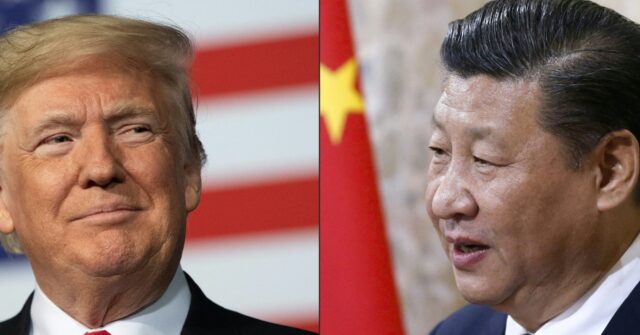Following Donald Trump’s declaration of victory in the U.S. presidential election, the Chinese Foreign Ministry refrained from offering congratulations. While multiple world leaders, such as Ukrainian President Volodymyr Zelensky, Indian Prime Minister Narendra Modi, and French President Emmanuel Macron, publicly acknowledged Trump’s success, the Chinese authorities chose to adopt a more cautious approach, citing the need for the election results to be fully confirmed. Spokeswoman Mao Ning stated that China would engage with the U.S. based on principles of mutual respect, peaceful coexistence, and cooperation, emphasizing that the election was an internal matter and that the Chinese government respects the American voters’ choice.
In the wake of Trump’s projected victory, there were speculations surrounding his potential economic policies, particularly regarding tariffs on Chinese goods. Although Mao declined to comment on Trump’s previous campaign promises, including imposing a 60% tariff on Chinese products, concerns echoed within Chinese circles about the ramifications of such policies. A pro-regime analyst from the state-run Global Times advised Trump to learn from his prior presidential term and adjust his approach, urging him to avoid a combative stance toward China, which could exacerbate tensions between the two nations. This reflection underscores the significant economic interdependence and responsibilities that both world powers share.
The potential implementation of tariffs led to a noteworthy decline in the value of the Chinese yuan, which shed more than 900 basis points against the U.S. dollar amid anticipations of Trump’s presidency. As the election outcome became clearer, the currency struggled, suggesting broader economic anxieties tied to Trump’s pro-business agenda and tough stance on China. Analysts highlighted how Trump’s reelection might continue his approach to trade negotiations that had previously strained U.S.-China relations, leading to uncertain economic projections in Chinese financial markets.
Chinese state media narratives surrounding the U.S. elections largely conveyed skepticism about the integrity of the democratic process, portraying America as a chaotic and declining power. The Xinhua News Agency even likened the electoral experience to a Thanksgiving dinner marked by disputes and dissatisfaction, implying a lack of unity within the United States. Coverage emphasized themes of division, delving into the security measures enacted by U.S. law enforcement to protect voters, which further painted a picture of turmoil and unrest in America. Such representations aimed to undermine democratic values while illustrating a contrast to China’s own governance model.
Despite China officially labeling itself a “consultative democracy,” the political reality is that the Communist Party retains control over the state and suppresses dissent. In stark contrast to the ideals of free elections, the Communist Party’s grip on power translates into a lack of public agency. The Chinese propaganda apparatus seeks to manipulate public perception both domestically and internationally, often framing U.S. electoral conflicts as emblematic of deeper systemic faults within the American political framework.
As the U.S. navigates the implications of Trump’s victory on domestic and foreign policies, particularly concerning China, the world watches closely. The response from the Chinese government reflects a blend of caution and tactical diplomacy as they navigate the complexities of a potentially transformative period in U.S.-China relations. The overarching narrative suggests not only economic considerations but also a broader ideological contest in the global arena, as each nation reassesses its place in a rapidly changing geopolitical landscape. The outcomes of these interactions may significantly influence future bilateral relations and set the tone for international affairs moving forward.

